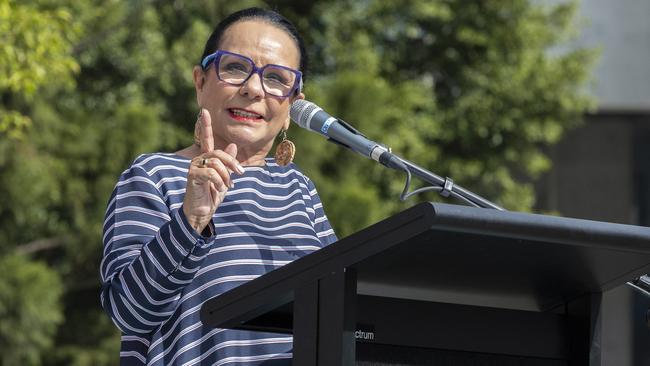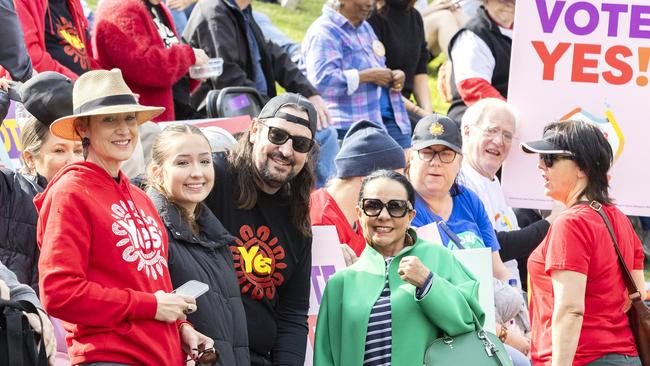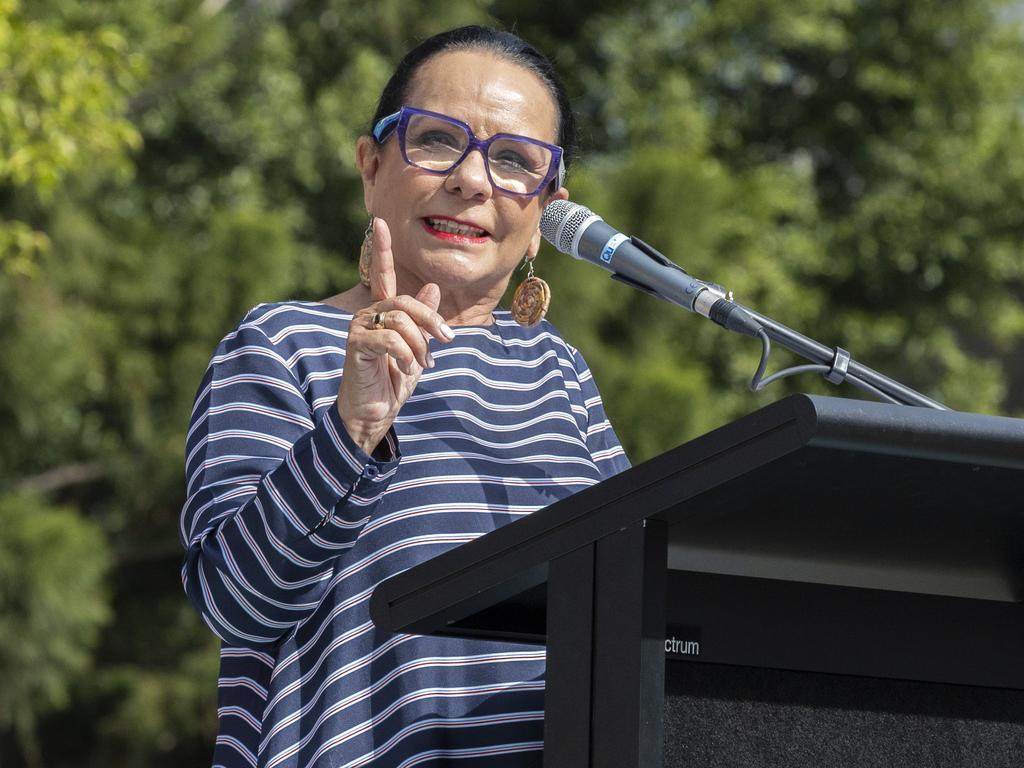Indigenous voice to parliament: Linda Burney defines policy remit under her watch
Stopping suicide, encouraging kids to go to school and producing more jobs top the list of Linda Burney’s priorities for the Indigenous voice to parliament.

Linda Burney has revealed health, education, jobs and housing as the four policy priorities on which she will ask the Indigenous voice to provide advice, as she is forced to define its remit and silence criticism from the No camp.
In a full-throated defence of the advisory body, the Indigenous Australians Minister will use a major address in Canberra on Wednesday to outline more of her vision for the voice to parliament and the executive government, which is facing falling support in the polls as opponents home in on the lack of detail about it and warn it will divide Australia.
Ms Burney will tell the National Press Club the voice will be active and engaged under her watch and offer new perspectives to old challenges from Indigenous Australians.
“From day one, the voice will have a full in-tray,” she will say, according to an advance copy of her speech. “I will ask the voice to consider four main priority areas: health, education, jobs and housing. The voice will be tasked with taking the long-view.
“Unlike government, it won’t be distracted by the three-year election cycles. It will plan for the next generation, not the next term. It will be focused on making a better future for the next generation. The time to make a generational difference is now.”
While Ms Burney faced sustained Coalition questioning in the final sitting fortnight before the winter break over what the voice would be able to advise on, including abolishing Australia Day, the minister will on Wednesday say its remit will include improving school attendance rates and fixing an employment and training program in remote communities.
She will attempt to answer three questions in her speech – why is the voice needed, how will the voice work and why does it need to be enshrined in the Constitution – amid pressure from Peter Dutton to pursue constitutional recognition first and then legislate local and regional advisory bodies.
But Ms Burney will offer little new detail on the voice’s machinations, with questions remaining over the role local and regional voices will play or whether members would be elected or appointed.
“It’s not going to be a passive advisory body. I want it to be active and engaged,” she will say.
“We want the voice to come up with fresh ideas – fresh ideas than can guide us over the long-term. As the minister, when I meet with the voice for the first time I will say: ‘Bring me your ideas on how to stop our people from taking their own lives’.
“‘Bring me your ideas on how to help our kids go to school and thrive. Bring me your ideas on how we make sure our mob live strong and healthy lives. How we ensure more people have jobs – with the independence and purpose that brings. How we strengthen culture and language. How we support families better. How we keep alive our 65,000 years of culture and make it stronger’.
“I will be asking the voice for their input to solve these most pressing issues’.”
It will be up to politicians to legislate the voice if the referendum, expected in mid-October, succeeds. The government’s constitutional amendment states parliament shall make laws with respect to its composition, functions, powers and procedures.
Ms Burney will warn against a legislated voice that is not in the Constitution, saying it will simply be abolished by future governments. “Why does the voice need to be in the Constitution? Why can’t it just be legislated?” Ms Burney will say.
“There are two main reasons. One: a voice or representative body cannot be truly independent or give frank advice if the government of the day can abolish it with a stroke of the pen. Two: it’s what First Nations people requested in the Uluru Statement from the Heart.
“The starting point for reconciliation has to be listening to the wishes of Indigenous people. The starting point cannot be a political fix made in Canberra. That’s not real reconciliation.”

Making the speech during NAIDOC week, Ms Burney will tell the Press Club audience that young Aboriginal people in particular need a voice. With just four out of 19 closing the gap targets on track, she will insist: “I honestly believe the voice can help. We have everything to gain and nothing to lose by supporting the voice. Because the voice will be a mechanism for government and parliament to listen. It will be like a resource of local knowledge and solutions that can help us make better policies.
“The voice will be nimble, efficient, and focused on making a practical difference.”
Manager of Opposition Business Paul Fletcher said on Tuesday the Coalition had asked Ms Burney 20 questions about the voice in the past two sitting weeks but she had “repeatedly failed to provide detailed information in her answers”.
According to the government’s constitutional amendment, the voice may make representations to the parliament and executive government “on matters relating to Aboriginal and Torres Strait Islander peoples”.








To join the conversation, please log in. Don't have an account? Register
Join the conversation, you are commenting as Logout